19th NOVEMBER 1917-31st OCTOBER 1984 INDIRA GANDHI - IRON LADY
AND FIRST INDIANWOMAN WARRIOR -PRIYADARSHINI
Indira Gandhi
Early life and rise to prominence
![Nehru, Jawaharlal: Nehru and his daughter, Indira, greeting Harry S. Truman in October 1949 [Credit: Encyclopædia Britannica, Inc.]](http://media-2.web.britannica.com/eb-media/18/128318-004-680F50F9.jpg) Indira Nehru was the only child of Jawaharlal Nehru, who was one of the chief figures in India’s struggle to achieve independence from Britain, was a top leader of the powerful and long-dominant Indian National Congress (Congress Party), and was the first prime minister (1947–64) of independent India. Her grandfather Motilal Nehru was one of the pioneers of the independence movement and was a close associate of Mohandas (“Mahatma”) Gandhi. She attended, for one year each, Visva-Bharati University in Shantiniketan (now in Bolpur, West Bengal state) and then the University of Oxford in England. She joined the Congress Party in 1938.
Indira Nehru was the only child of Jawaharlal Nehru, who was one of the chief figures in India’s struggle to achieve independence from Britain, was a top leader of the powerful and long-dominant Indian National Congress (Congress Party), and was the first prime minister (1947–64) of independent India. Her grandfather Motilal Nehru was one of the pioneers of the independence movement and was a close associate of Mohandas (“Mahatma”) Gandhi. She attended, for one year each, Visva-Bharati University in Shantiniketan (now in Bolpur, West Bengal state) and then the University of Oxford in England. She joined the Congress Party in 1938.
In 1942 she married Feroze Gandhi (died 1960), a fellow member of the party. The couple had two children, Sanjay and Rajiv. However, the two parents were estranged from each other for much of their marriage. Indira’s mother had died in the mid-1930s, and thereafter she often acted as her father’s hostess for events and accompanied him on his travels.
![Gandhi, Indira: Gandhi and U.S. first lady Jacqueline Kennedy in New Delhi, India, March 1962 [Credit: John F. Kennedy Presidential Library]](http://media-2.web.britannica.com/eb-media/64/146464-004-588B1507.jpg) The Congress Party came to power when her father took office in 1947, and Gandhi became a member of its working committee in 1955. In 1959 she was elected to the largely honorary post of party president. She was made a member of the Rajya Sabha (upper chamber of the Indian parliament) in 1964, and that year Lal Bahadur Shastri—who had succeeded Nehru as prime minister—named her minister of information and broadcasting in his government.
The Congress Party came to power when her father took office in 1947, and Gandhi became a member of its working committee in 1955. In 1959 she was elected to the largely honorary post of party president. She was made a member of the Rajya Sabha (upper chamber of the Indian parliament) in 1964, and that year Lal Bahadur Shastri—who had succeeded Nehru as prime minister—named her minister of information and broadcasting in his government.First period as prime minister
On Shastri’s sudden death in January 1966, Gandhi was named leader of the Congress Party—and thus also became prime minister—in a compromise between the party’s right and left wings. Her leadership, however, came under continual challenge from the right wing of the party, led by former minister of finance Morarji Desai. She won a seat in the 1967 elections to the Lok Sabha (lower chamber of the Indian parliament), but the Congress Party managed to win only a slim majority of seats, and Gandhi had to accept Desai as deputy prime minister.
Tensions grew within the party, however, and in 1969 she was expelled from it by Desai and other members of the old guard. Undaunted, Gandhi, joined by a majority of party members, formed a new faction around her called the “New” Congress Party. In the 1971 Lok Sabha elections the New Congress group won a sweeping electoral victory over a coalition of conservative parties. Gandhi strongly supported East Pakistan (now Bangladesh) in its secessionist conflict with Pakistan in late 1971, and India’s armed forces achieved a swift and decisive victory over Pakistan that led to the creation ofBangladesh. She became the first government leader to recognize the new country.
![Gandhi, Indira [Credit: Bettmann/Corbis]](http://media-2.web.britannica.com/eb-media/92/77992-004-BDDA9759.jpg) In March 1972, buoyed by the country’s success against Pakistan, Gandhi again led her New Congress Party group to landslide victories in a large number of elections to state legislative assemblies. Shortly afterward, however, her defeated Socialist Party opponent from the 1971 national election charged that she had violated the election laws in that contest. In June 1975 the High Court of Allahabad ruled against her, which meant that she would be deprived of her seat in the parliament and would be required to stay out of politics for six years. She appealed the ruling to the Supreme Court but did not receive a satisfactory response. Taking matters into her own hands, she declared a state of emergency throughout India, imprisoned her political opponents, and assumed emergency powers. Many new laws were enacted that limited personal freedoms. During that period she also implemented several unpopular policies, including large-scale sterilization as a form of birth control.
In March 1972, buoyed by the country’s success against Pakistan, Gandhi again led her New Congress Party group to landslide victories in a large number of elections to state legislative assemblies. Shortly afterward, however, her defeated Socialist Party opponent from the 1971 national election charged that she had violated the election laws in that contest. In June 1975 the High Court of Allahabad ruled against her, which meant that she would be deprived of her seat in the parliament and would be required to stay out of politics for six years. She appealed the ruling to the Supreme Court but did not receive a satisfactory response. Taking matters into her own hands, she declared a state of emergency throughout India, imprisoned her political opponents, and assumed emergency powers. Many new laws were enacted that limited personal freedoms. During that period she also implemented several unpopular policies, including large-scale sterilization as a form of birth control.Fall from power and return to office
Public opposition to Gandhi’s two years of emergency rule was vehement and widespread, and after it ended in early 1977, the released political rivals were determined to oust her and the New Congress Party from power. When long-postponed national parliamentary elections were held later in 1977, she and her party were soundly defeated, whereupon she left office. The Janata Party (precursor to theBharatiya Janata Party) took over the reins of government, with newly recruited member Desai as prime minister.
In early 1978 Gandhi and her supporters completed the split from the Congress Party by forming the Congress (I) Party—the “I” signifying Indira. She was briefly imprisoned (October 1977 and December 1978) on charges of official corruption. Despite those setbacks, she won a new seat in the Lok Sabha in November 1978, and her Congress (I) Party began to gather strength. Dissension within the ruling Janata Party led to the fall of its government in August 1979. When new elections for the Lok Sabha were held in January 1980, Gandhi and Congress (I) were swept back into power in a landslide victory. Her son Sanjay, who had become her chief political adviser, also won a seat in the Lok Sabha. All legal cases against Indira, as well as against Sanjay, were withdrawn.
Sanjay Gandhi’s death in an airplane crash in June 1980 eliminated Indira’s chosen successor from the political leadership of India. After Sanjay’s death, Indira groomed her other son, Rajiv, for the leadership of her party. She adhered to the quasi-socialist policies of industrial development that had been begun by her father. She established closer relations with the Soviet Union, depending on that country for support in India’s long-standing conflict with Pakistan.
During the early 1980s Indira Gandhi was faced with threats to the political integrity of India. Several states sought a larger measure of independence from the central government, and Sikh separatists inPunjab state used violence to assert their demands for an autonomous state. In 1982 a large number of Sikhs, led by Sant Jarnail Singh Bhindranwale, occupied and fortified the Harmandir Sahib (Golden Temple) complex at Amritsar, the Sikhs’ holiest shrine. Tensions between the government and the Sikhs escalated, and in June 1984 Gandhi ordered the Indian army to attack and oust the separatists from the complex. Some buildings in the shrine were badly damaged in the fighting, and at least 450 Sikhs were killed (Sikh estimates of the death toll were considerably higher). Five months later Gandhi was killed in her garden in New Delhi in a fusillade of bullets fired by two of her own Sikh bodyguards in revenge for the attack in Amritsar.
Written by Shubhajit Roy | New Delhi | Updated: October 30, 2015 5:27 am
Indian Prime Minister Narendra Modi, talks to African Union Commission chairperson Nkosazana Dlamini-Zuma, as other African leaders look upon the India Africa Forum Summit in New Delhi, India, Thursday, Oct. 29, 2015. More than 40 African leaders are in New Delhi to attend the IAFS 2015. (Express photo by Renuka Puri)
At least seven African leaders remembered Jawaharlal Nehru’s contribution in building India’s relations with Africa in their speeches. And, about 10 African leaders recalled Mahatma Gandhi for having started his fight against injustice from Africa.
In the opening song-and-dance sequence at the inauguration of the summit, Nehru and Mahatma Gandhi were shown along with Nelson Mandela and Gamal Abdel Nasser.
Nehru was remembered by Zimbabwe President Robert Mugabe, Egypt’s President Abdel Fattah al-Sisi, and leaders from Morocco, Ghana, Mali, Mauritius, Sao Tome and Principe. The Mahatma was mentioned by Mugabe, South African President Jacob Zuma, African Union chair Nkosazana Dlamini Zuma, and leaders from Sudan, Liberia, Guinea, Madagascar, Namibia, Lesotho and Sao Tome. Many of them also mentioned NAM Summit and Bandung Conference — in which Nehru played an important role — although they did not name him.
Zuma said, “We would like to recall the historical ties that bind us over the last century, emphasising particularly the role of two of your visionary prime ministers, Jawaharlal Nehru and his daughter Indira Gandhi.”
Calling Nehru an active participant in the 1955 Bandung Conference in Indonesia and a founding member of the 1961 Non-Aligned Movement, he said the principles enshrined in the NAM were relevant in today’s challenging times. “Indira Gandhi, in her first 11 years in office from 1966 to 1977, changed India’s Africa policy through the introduction of the Africa-India Development Cooperation and India’s support for liberation struggles in Africa, including South Africa,” he said. “The actions of these two Indian visionaries have created the base of strong solidarity between African member states and India.”
In his address, Mugabe said Mahatma Gandhi and Nehru led the way through non-violence and showed the path to rid India and Africa of colonialism. The 91-year-old leader also termed the Congress as a “great party” as he recalled Africa’s ties with Gandhi and Congress. Moroccan King Mohamed VI said his grandfather and the “great” Nehru worked together in anti-colonial struggle in Africa.
Interestingly, Congress leaders, including Sonia Gandhi and Manmohan Singh, Wednesday night skipped the dinner hosted by PM Modi for the African leaders, apparently sending a message that it was outraged over the “insult” to the legacy of Nehru.
Indira Gandhi
Prime Minister (1917–1984)
Indira Gandhi was India's third prime minister, serving from 1966 until 1984, when her life ended in assassination. She was the daughter of Jawaharlal Nehru, India's first prime minister.
Synopsis
Indira Gandhi was born on November 19, 1917, in Allahabad, India. Gandhi was born into the politically prominent Nehru family; her father, Jawaharlal Nehru, served as India’s first prime minister. Gandhi served three consecutive terms as prime minister, between 1966 and 1977, and another term beginning in 1980. In 1984, Gandhi was assassinated by her Sikh bodyguards.
Early Life
The only child of Jawaharlal Nehru and the first prime minister of independent India, Indira Gandhi was born on November 19, 1917. A stubborn and highly intelligent young woman, she enjoyed an excellent education in Swiss schools and at Somerville College, Oxford.
After her mother died, in 1936, Gandhi became something of her father's hostess, learning to navigate complex relationships of diplomacy with some of the great leaders of the world.
Political Career
Gandhi was elected president of the Indian National Congress in 1960. After her father’s death, Gandhi was appointed minister of information and broadcasting. When her father’s successor, Lal Bahadur Shastri, died abruptly in 1966, India’s congress appointed her to the post of prime minister.
She surprised her father’s old colleagues when she led with a strong hand, sacking some of highest-ranking officials. Gandhi subsequently brought about great change in agricultural programs that improved the lot of her country’s poor. For a time, she was hailed as a hero.
Diplomatic Success
In 1971, the Pakistan army conducted violent acts against the people of East Pakistan. Nearly 10 million people fled to India. Gandhi invited the Pakistani president to Shimla for a weeklong summit.
The two leaders eventually signed the Shimla Agreement, agreeing to resolve the dispute of Kashmir by peaceful means. Her work eventually led to the creation of the new and independent nation of Bangladesh.
Gandhi also led a movement that became known as the Green Revolution. In an effort to address the chronic food shortages that mainly affected the extremely poor Sikh farmers of the Punjab region, Gandhi decided to increase crop diversification and food exports as a way out of the problem, creating new jobs as well as food for her countrymen.
Authoritarian Leanings and Imprisonment
Despite these advancements, Gandhi ruled with an authoritarian hand, and corruption boiled within her congress and her national and state governments. In 1977, the high courts found her guilty of a minor infraction during the year’s elections and called for her resignation. Gandhi responded by requesting that the president call for a state of emergency.
Gandhi lost the next election and was later imprisoned. In 1980, the country responded differently and she won by a landslide majority. That same year, her son Sanjay Gandhi (b. 1946), who had been serving as her chief political adviser, died in a plane crash in New Delhi. After Sanjay's death, Indira prepared her other son, Rajiv (b. 1944), for leadership.
Advertisement — Continue reading below
Assassination
During the 1980s, a Sikh separatist movement developed in India, which Gandhi attempted to repress. Sikh extremists held a campaign inside the Golden Temple, and Gandhi ordered some 70,000 soldiers to purge the sacred space. More than 450 people died.
On October 31, 1984, a trusted bodyguard, who was a Sikh, pulled out a .38 revolver and shot her point-blank. Another bodyguard, also a Sikh, then took out an automatic weapon and shot 30 rounds into her body. Gandhi died on the way to the hospital.
Videos
Related Videos
Fact Check
We strive for accuracy and fairness. If you see something that doesn't look







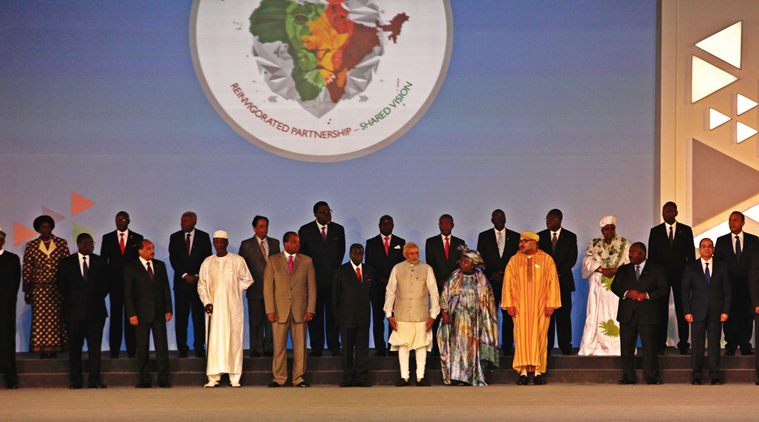














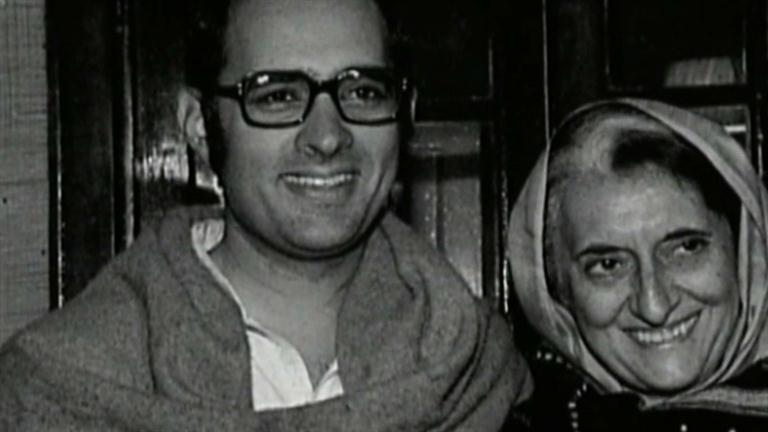
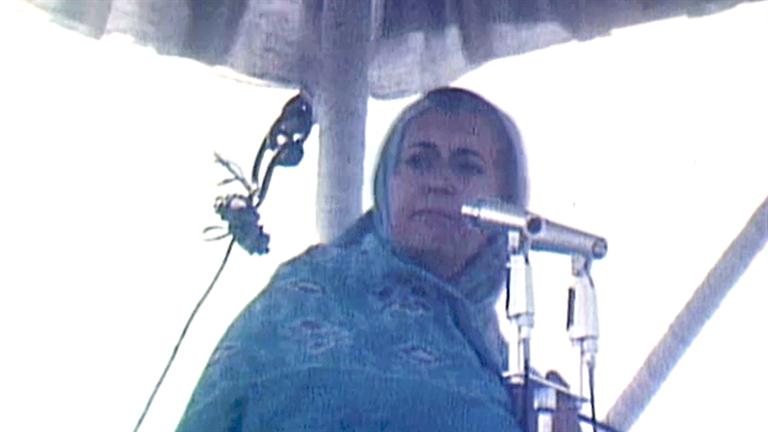
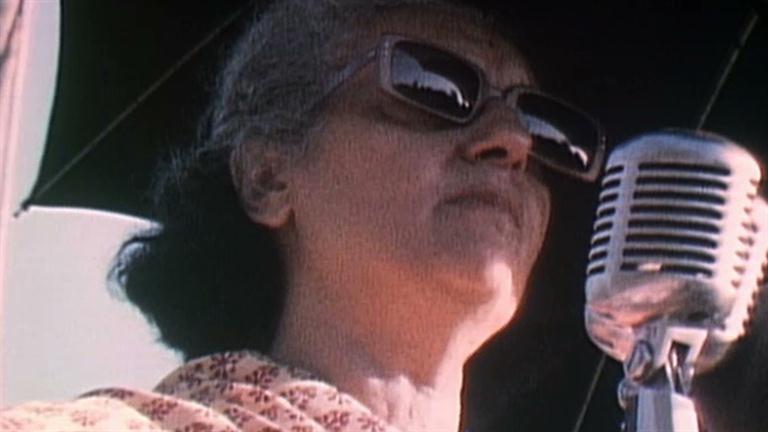
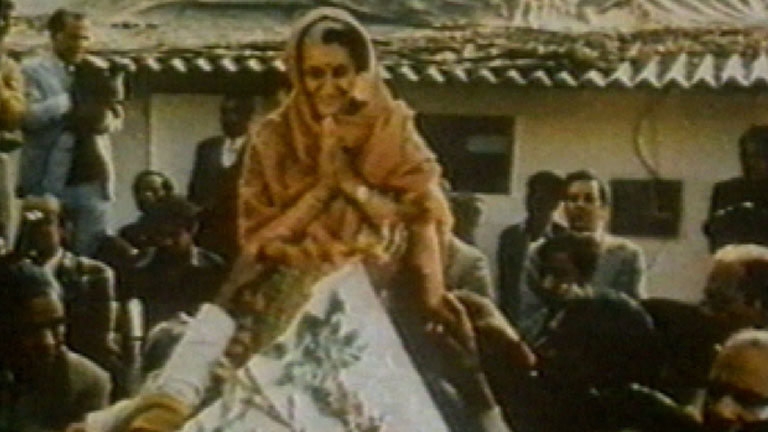
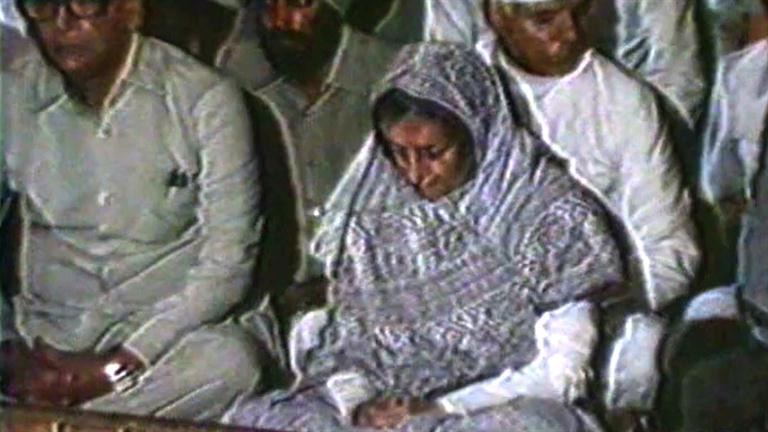
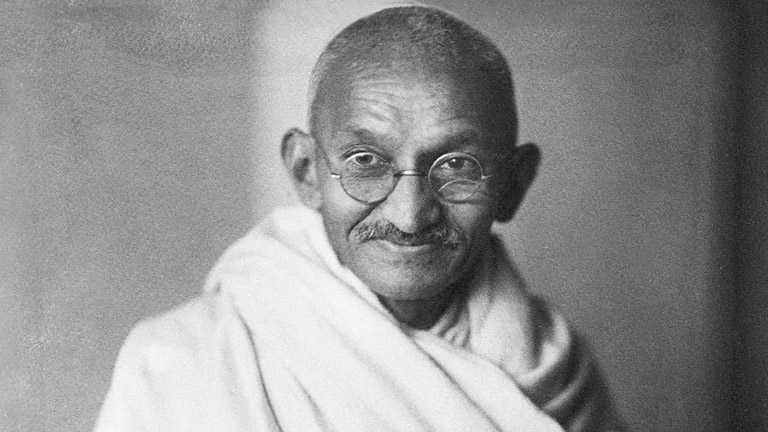
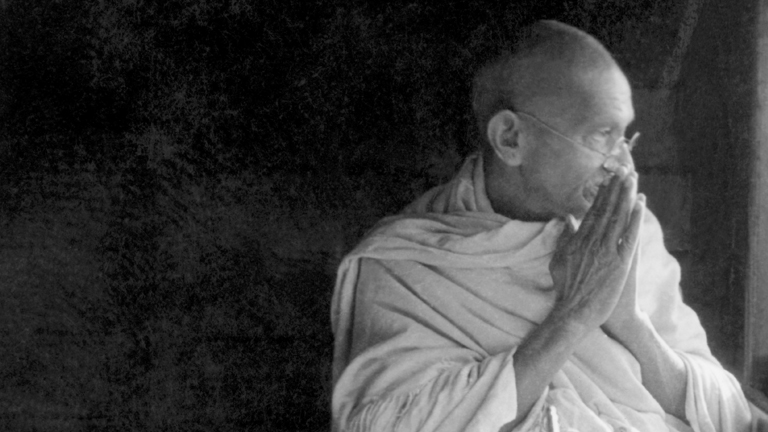
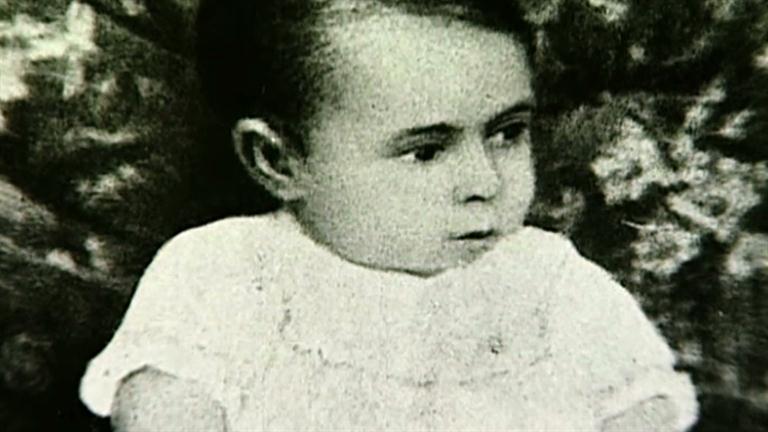

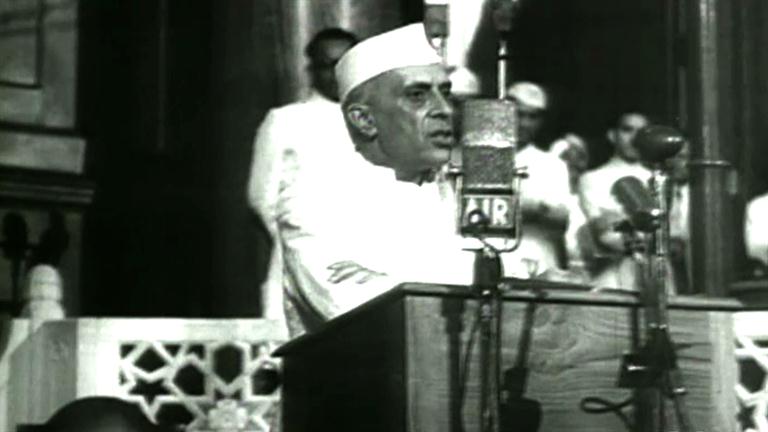
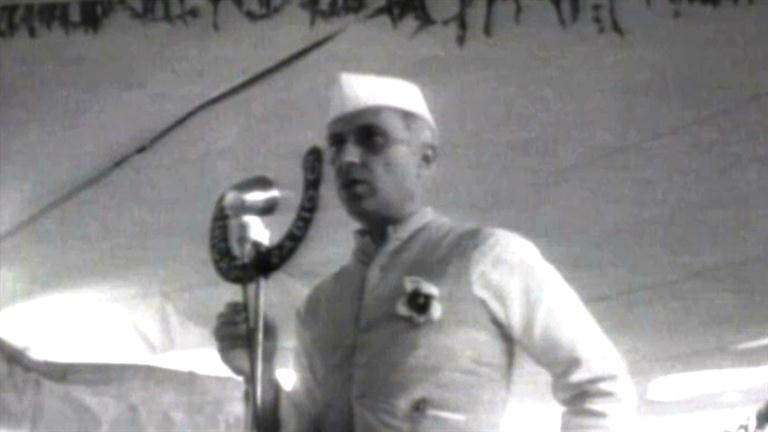
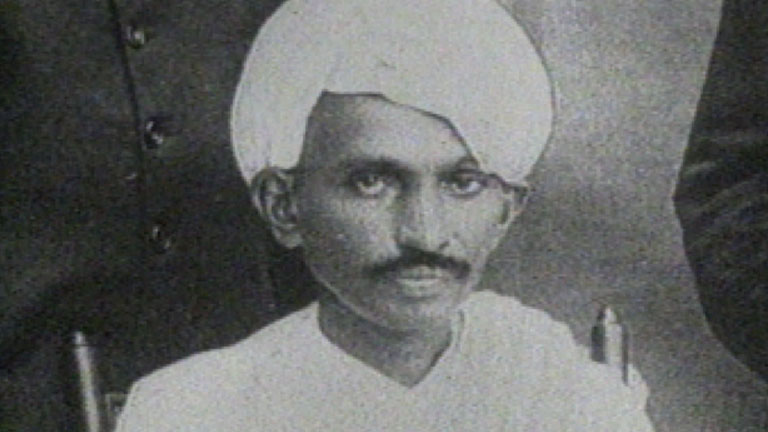
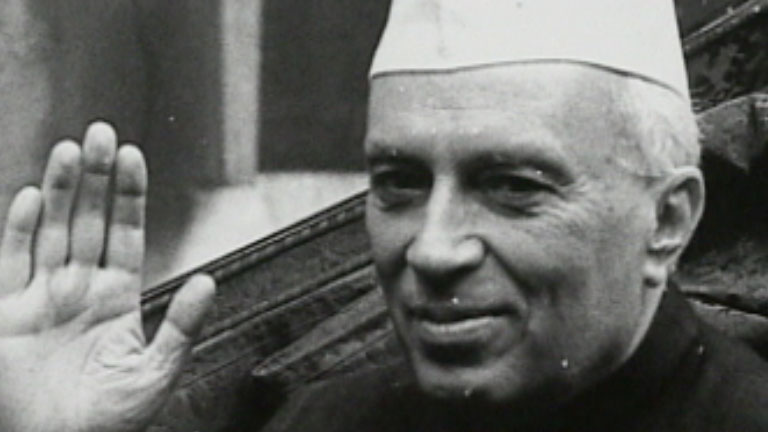
Nice post, we are the tourist guide providers we have the best guides,they will help you guide a various places in all over india for more click the below links,
ReplyDeleteTourist Guide
Tour Guide App
Tour Guide
Local Guide
Online Guide Booking
Top Tourist Guide Website
Nice Post
ReplyDeleteEssay On Narendra Modi>